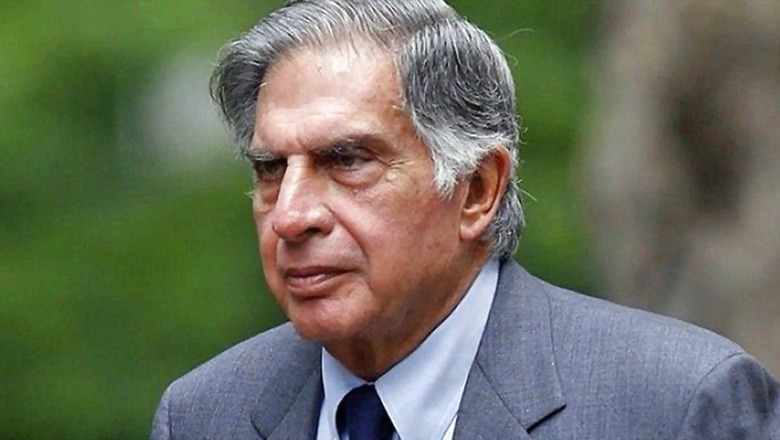
views
In the heart of India’s bustling corporate landscape, one name resonated with visionary leadership and unwavering commitment to social responsibility — Ratan Tata. The 86-year-old former chairman of Tata Sons, who remained an influential figure, passed away on late October 9 at the age of 86. Here’s everything you need to know about him.
Ratan Tata’s Education, Career, Philosophy, Interests
Born in 1937, this industrial stalwart has not only steered the Tata Group into new global frontiers but has also woven the fabric of philanthropy into the very ethos of business. From pioneering the launch of the world’s cheapest car, the Tata Nano, to spearheading landmark acquisitions like Corus, Tata’s legacy is built on innovation and a deep sense of purpose.
With a career spanning over six decades, Ratan Tata’s journey is not just a story of corporate success but also a narrative of compassion, resilience, and a relentless pursuit of excellence that continues to inspire countless individuals and organisations around the globe.
Early Life & Education
December 28, 1937: Ratan Tata was born in Mumbai into one of India’s wealthiest and most esteemed business families.
1948: Following the separation of his parents, Naval and Sonoo Tata, Ratan was raised by his grandmother, Lady Navajbai Tata.
1962: He graduated from Cornell University with a degree in architecture and structural engineering.
1975: Completed an Advanced Management Program at Harvard Business School.
Career Beginnings
1962: Ratan Tata began his career at the Tata Group, starting on the shop floor of Tata Steel, where he worked alongside blue-collar employees.
1971: He was appointed Director-in-Charge of the National Radio & Electronics Company Limited (NELCO), tasked with revitalising its struggling consumer electronics division.
Leadership at Tata Group
1991: Ratan Tata succeeded J.R.D. Tata as Chairman of Tata Sons and the Tata Group during a pivotal time of economic liberalisation in India.
Key Milestones as Chairman
1998: Launched the Tata Indica, marking the introduction of India’s first indigenously developed passenger car—a significant achievement for Tata Motors.
2000: Led the acquisition of Tetley Tea, Tata’s first major international purchase, which positioned Tata Tea among the world’s largest tea companies.
2004: Oversaw the public listing of Tata Consultancy Services (TCS), transforming it into one of India’s largest and most valuable firms.
2007: Tata Steel acquired the Corus Group, a British-Dutch steelmaker, for $12 billion, solidifying Tata Steel’s status as a global leader in steel production.
2008: Tata Motors purchased Jaguar and Land Rover from Ford for $2.3 billion, gaining ownership of two iconic British automotive brands.
2009: Introduced the Tata Nano, the world’s most affordable car, aimed at enhancing mobility for Indian families.
Retirement & Philanthropy
December 2012: Retired as Chairman of Tata Sons, passing the leadership to Cyrus Mistry, while remaining active in philanthropic and advisory capacities.
2014: Made investments in various startups, including Snapdeal, Ola, and Paytm, demonstrating his support for India’s burgeoning digital economy.
2016: Returned as interim Chairman of Tata Sons after Cyrus Mistry’s dismissal, before stepping down again when Natarajan Chandrasekaran took over in 2017.
Later Life & Honors
2017: Honoured with the Padma Vibhushan, India’s second-highest civilian award, in recognition of his significant contributions to trade and industry.
2020: Acknowledged for his humanitarian efforts during the COVID-19 pandemic, with the Tata Trusts committing substantial resources to support healthcare initiatives.
Ratan Tata Age in 2024: 86 years
Personal Life & Interests
Ratan Tata was renowned for his passion for cars, flying aircraft, and design. A devoted philanthropist, he dedicated a significant portion of his wealth to the Tata Trusts, which fund healthcare, education, and various social initiatives across India.
















Comments
0 comment